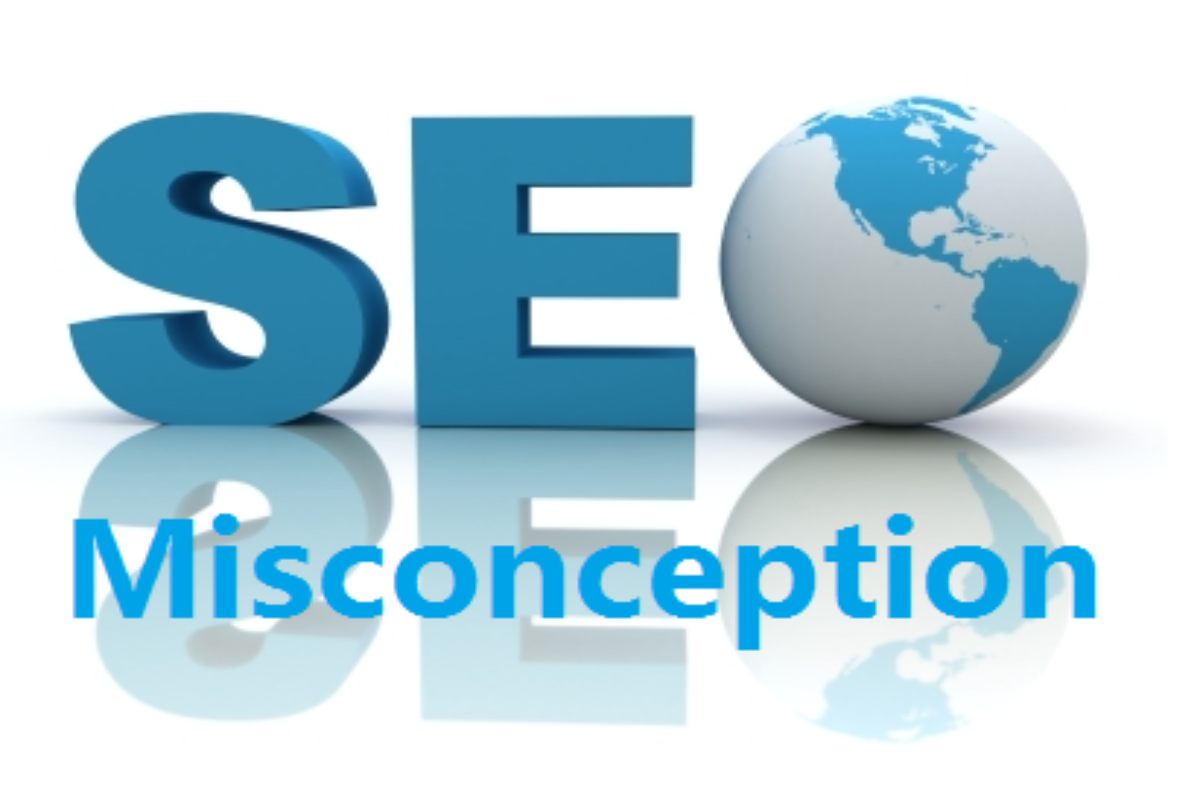Main Misconceptions About SEO – As we all know, you should take most things that you read online with a pinch of salt. Before you believe anything to be gospel, you must do the necessary research to confirm that “fact”.
In this article, we’re going to talk about the #5 main misconceptions about SEO and why you must ignore them!
1. The more you mention a keyword on a page the better it will rank
This is an incredibly harmful misconception because we see far too many businesses with websites that are chock-full of keywords. So much so that the content reads horribly and the overall vibe of the website becomes “spammy” and in poor taste.
Keyword stuffing is not a positive ranking factor. So, when writing the content for your page and optimizing the title tags and meta descriptions, you must place your focus keywords as naturally as possible.
Mention them because they belong there, not because you want to manipulate Google into ranking you (because it won’t work).
2. You don’t need to create content often as long as its high-value
While the ethos “quality over quantity” certainly applies to SEO and content creation, they aren’t words to live by.
Yes, you should always put an emphasis on creating exceptional, high-value content that helps your audience, however, you still need to maintain a certain level of consistency.
For example, you should aim to create a new blog post at least once a week.
However, if you need 2-weeks to produce a truly game-changing article then that’s fine, as long as it really is next-level quality and that you commit to posting on a set day, at a set time.
Quality and consistency over quantity.
In any case, Google (and your audience) will much prefer it if you are more active online.
Remember, everyone is scrabbling for your audience’s attention which means you better get busy if you want to remain fixed on their radar.
3. Each and every backlink is awesome. Period.
When you have a brand-new website, the prospect of having a website (any website) linking back to yours can be exciting. However, it’s important to understand that not all links are created equal.
In fact, the difference between the lowest value link and the highest value link is gargantuan! So much so that you could have 10,000 garbage links and they wouldn’t have nearly as much of an impact as 1 high-value link from a reputable website with a high PR (in fact, they’d almost certainly cause harm).
In other words, if someone offers you thousands and thousands of links for a few hundred bucks, run a mile. Quality over quantity, always.
Instead, develop a guest-blogging strategy to couple with your content marketing and build your backlink profile the right way.
4. If you aren’t #1 you won’t make any money
This isn’t true.
Yes, being sat as position 1 for all of your primary focus keywords is the dream, but that doesn’t mean that there’s no value in sitting at #2, #3, #4, or #5.
The fact is, there are certain keywords that you will likely never rank as number 1 for, no matter how much money you throw at it.
However, what you can do is ensure that your onsite optimization and overall user experience (e.g., page load speed) is so on-point that the little traffic you do get from a lower position is far more likely to convert.
5. Doing your own SEO will save you money
Unless you are a large corporation with a world-class marketing department at your disposal (and even then most Fortune-500 companies outsource to the experts), you’re not going to have as much success doing in-house SEO as you might imagine.
SEO is incredibly time and resource intensive. So, unless you want to manage a business and carry out the duties of several SEO experts at the same time, you are almost certainly better off hiring an online marketing company to assist you.
Think of it like hiring an accountant…only, rather than balancing the books, they’re making you money by driving more ‘ready to spend’ customers to your website.

